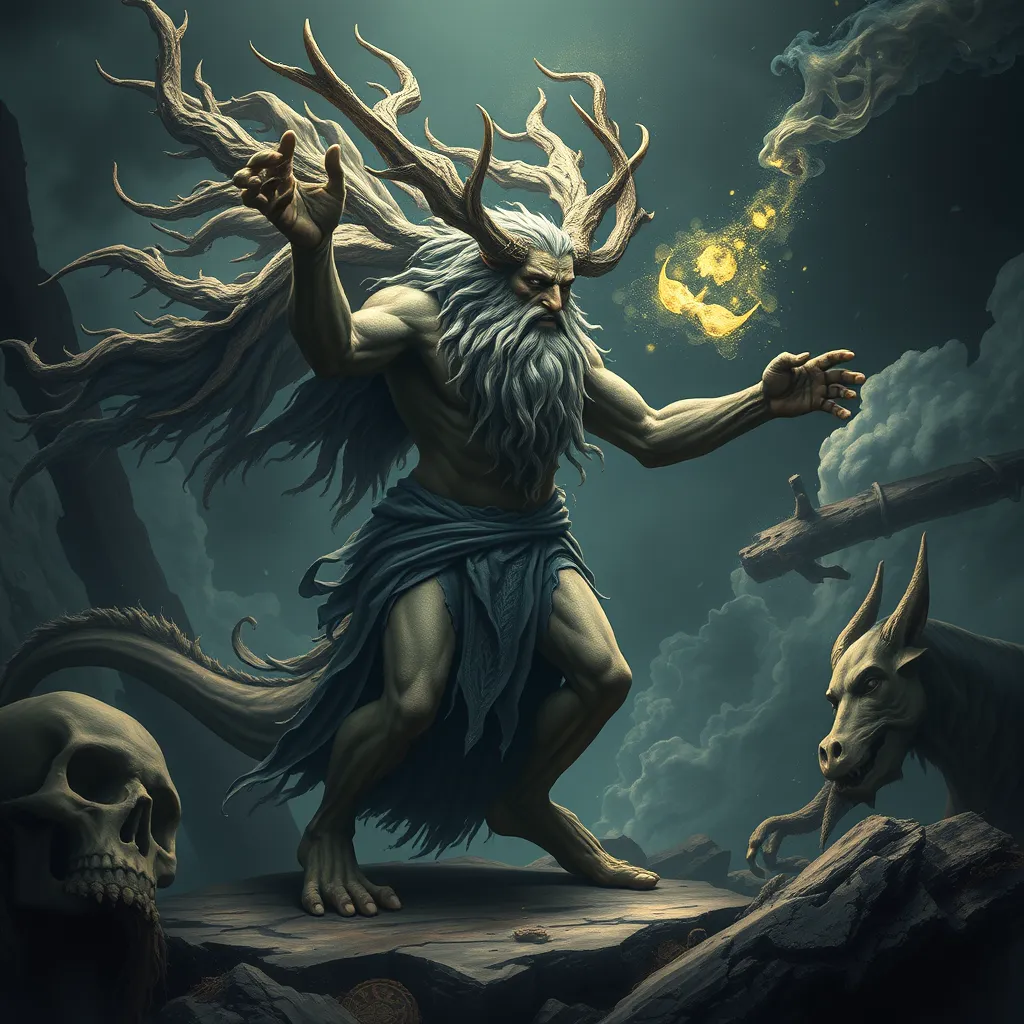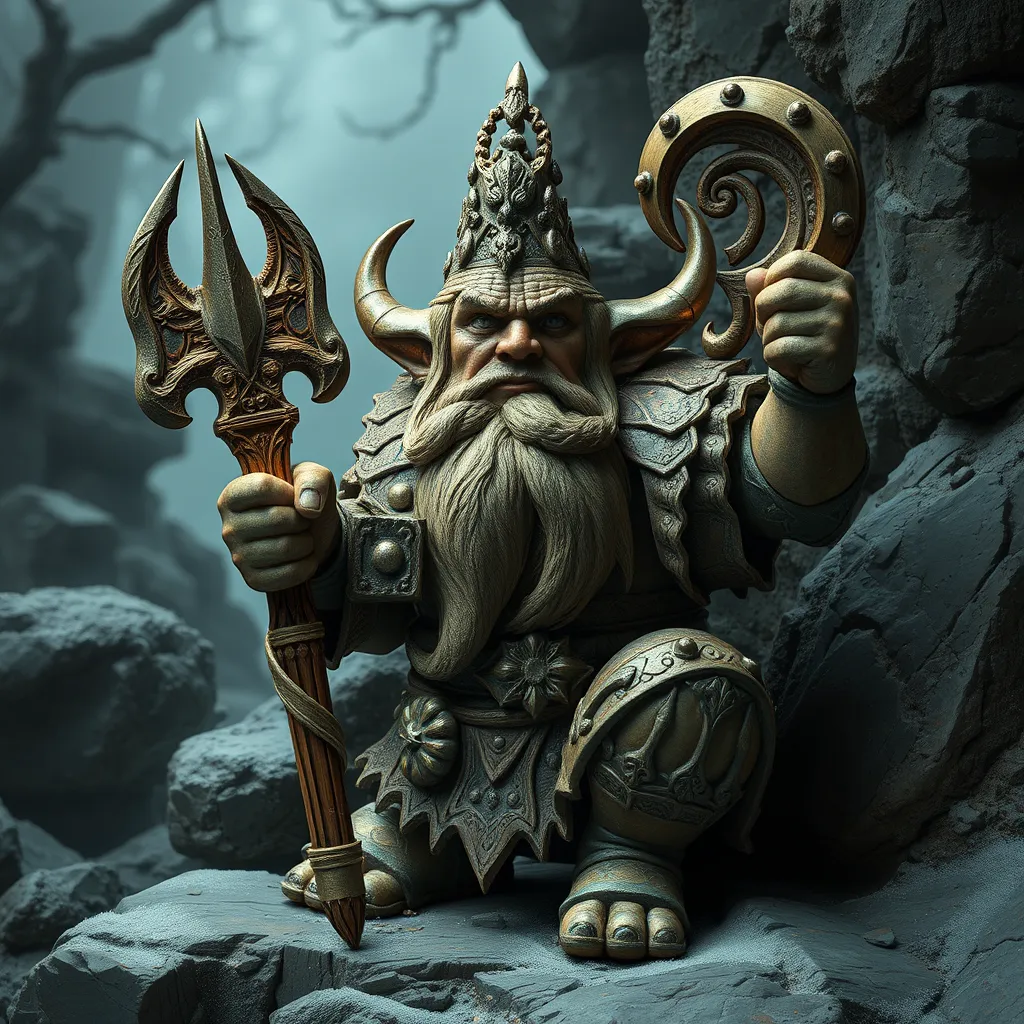From Wildness to Wisdom: The Transformation of Nessus in Greek Mythology
I. Introduction
Nessus, a centaur from Greek mythology, stands as a complex figure embodying the duality of wildness and wisdom. His story intertwines themes of violence, betrayal, and ultimately, transformation. This article aims to explore Nessus’ journey, examining how his character evolves from a wild beast to a tragic figure, and the broader implications of his tale within Greek mythology.
II. The Mythical Background of Nessus
Nessus is depicted as a centaur, a creature that is half-man and half-horse, known for embodying the wild, untamed aspects of nature. In Greek mythology, centaurs often represent the conflict between civilization and barbarism, showcasing the tension between human intellect and animalistic impulses.
- Origin: Nessus is the son of Ixion and a cloud, often associated with the wildness of nature.
- Characteristics: He is depicted as both strong and savage, embodying the primal instincts of the centaur race.
Key narratives involving Nessus highlight his interactions with heroes and mortals, often serving as a catalyst for conflict and tragedy.
III. The Encounter with Heracles
The most pivotal moment in Nessus’ story occurs during his encounter with Heracles at a river crossing. This meeting is not merely a chance encounter but a clash of two formidable forces, each representing different aspects of human nature.
- Context: Nessus offers to help Heracles’ wife, Deianira, cross the river, but he attempts to abduct her.
- Significance of the Fight: Heracles intervenes, leading to a fierce battle where he ultimately kills Nessus with a poisoned arrow.
This encounter is rich with themes of violence and conflict, reflecting the broader struggles between civilized order and chaotic wildness. Heracles, often seen as a symbol of strength and virtue, contrasts sharply with the raw impulses of Nessus, illustrating the eternal struggle within humanity.
IV. The Legacy of the Poisoned Shirt
Following Nessus’ death, he leaves behind a significant legacy in the form of a poisoned shirt intended for Deianira. This shirt becomes a crucial element in the unfolding tragedy of Heracles.
- Aftermath of Nessus’ Death: In his final moments, Nessus deceives Deianira, telling her that the shirt will ensure Heracles’ fidelity.
- Symbolism of the Shirt: The poisoned shirt represents betrayal and the unintended consequences of actions driven by passion and revenge.
The implications of this act ripple through the lives of those involved, highlighting the tragic fallout from the encounter between wildness and wisdom.
V. Transformation through Tragedy
Nessus’ death marks a significant turning point, leading to a transformation in how his character is perceived. From a villainous figure, he evolves into a tragic character whose actions shape the destiny of others.
- Legacy of His Death: While Nessus is initially seen as a brute, his death catalyzes a series of tragic events that reflect the complexities of human emotion.
- Transformation from Villain to Tragic Figure: His story becomes a cautionary tale about the consequences of unchecked desires and the folly of revenge.
This transformation invites reflection on the lessons learned from his story, emphasizing the importance of wisdom in navigating human relationships and emotions.
VI. Interpretations of Nessus in Art and Literature
Nessus has been depicted in various forms of art and literature throughout history, reflecting his multifaceted nature.
- Ancient Art: Sculptures and vase paintings often capture the moment of his struggle with Heracles, symbolizing the clash of civilization and wildness.
- Modern Literature: Contemporary writers reinterpret Nessus’ myth, exploring themes of betrayal, love, and the complexity of human nature.
The ongoing relevance of Nessus allows for a deeper understanding of human behavior and the intricate balance between chaos and reason in our lives.
VII. The Themes of Wildness and Wisdom
Nessus’ story encapsulates the intersection of primal instincts and learned wisdom, providing a rich ground for philosophical exploration.
- Primal Instincts vs. Learned Wisdom: The conflict between Nessus and Heracles reflects the struggle within individuals to reconcile their base desires with rational thought.
- Duality of Human Nature: Nessus embodies the complexities of human nature, illustrating that wildness and wisdom coexist within us all.
These themes invite contemplation on the philosophical implications of transformation and redemption, urging us to seek balance in our own lives.
VIII. Conclusion
Nessus’ journey from wildness to wisdom serves as a poignant reminder of the complexities of human nature. His myth highlights the enduring impact of actions driven by primal instincts and the importance of wisdom in navigating the moral landscape of life.
As we reflect on Nessus’ story, we are left with final thoughts on the balance between chaos and reason in mythology, reminding us that every tale carries lessons that resonate through time and space.




